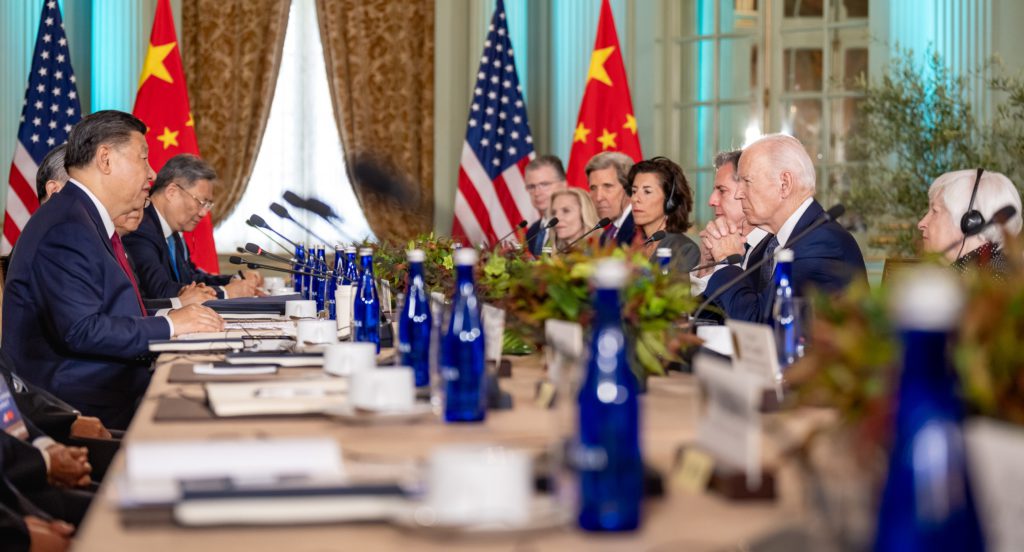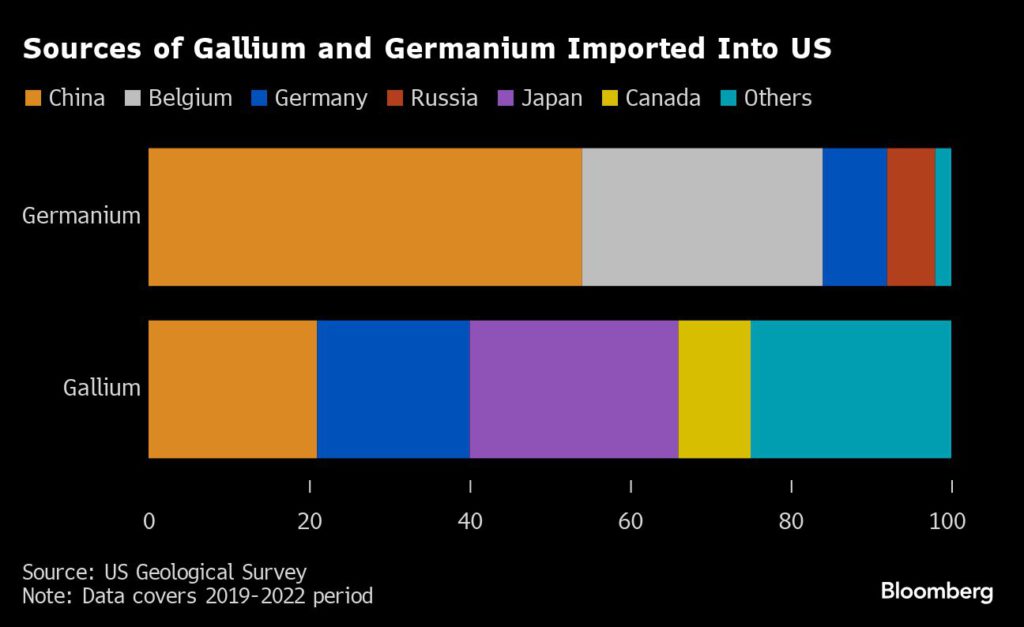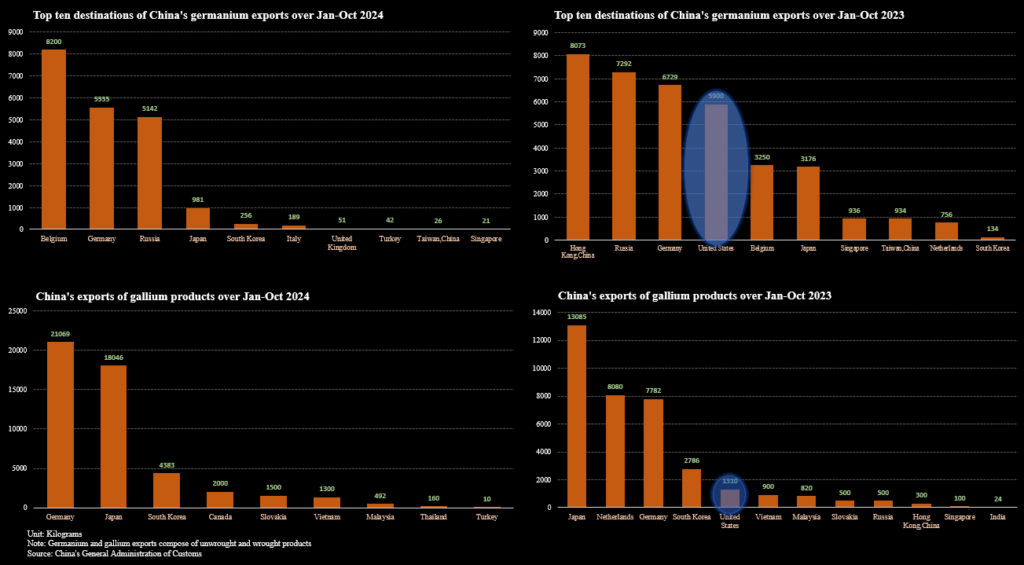China bans export of gallium, germanium and antimony to the US

China announced on Tuesday an immediate ban on exports of gallium, germanium and antimony to the United States, a day after the Biden administration imposed expanded restrictions on the sale of advanced US technology to China.
The decision, based on national security concerns, also enforces stricter reviews of graphite items shipped to the US, according to China’s Ministry of Commerce.
“In principle, the export of gallium, germanium, antimony and superhard materials to the United States shall not be permitted,” the ministry stated.
Gallium and germanium are essential for semiconductors, with germanium also critical for infrared technology, fiber optic cables, and solar cells. Antimony is widely used in bullets and other weaponry, while graphite constitutes the largest component by volume in electric vehicle batteries.

China currently dominates the global production of these critical materials crucial for the manufacturing of advanced technologies.
Retaliation for US restrictions
The export ban follows fresh US curbs on high-bandwidth memory chips, including those produced by foreign companies, aimed at hindering China’s advancements in semiconductors and AI systems.
Reacting to the bans, three Chinese industry associations representing the internet, semiconductor, and auto sectors advised domestic companies to carefully evaluate US chip purchases.
Meanwhile, a White House spokesperson told Reuters that the US would “take necessary steps” in response, emphasizing the need to collaborate with allies to “de-risk and diversify critical supply chains away from PRC (China).”
China’s Foreign Minister Wang Yi urged the US to take steps toward stabilizing bilateral relations.
“We urge the US side to do more things that would help stabilize the bilateral relationship, and hope that the new administration will take a good first step in China-US interactions in the next four years,” he said.
A US Geological Survey report last month warned that a total export ban on gallium and germanium could result in a $3.4 billion hit to the US economy.
Chinese customs data revealed no shipments of germanium or gallium to the US through October. Antimony shipments also plunged 97% in October compared to September following Beijing’s restrictions.

China accounted for 48% of the world’s mined antimony last year, alongside 59.2% of global refined germanium production and 98.8% of refined gallium output in 2023, according to consultancy Project Blue.

“These restrictions significantly escalate tensions in already tight supply chains,” Jack Bedder, co-founder of Project Blue, told Reuters.
Antimony trioxide prices in Rotterdam surged 228% since January, reaching $39,000 per metric ton by late November.
Calls for domestic supply
The new ban has spurred renewed calls to reduce US dependence on China for critical minerals.
Perpetua Resources, which is developing an antimony mine in Idaho with US government support, accused China of “weaponizing” its control over essential resources.
“It’s time to get serious about American mineral sources and secure our future,” said Perpetua CEO Jon Cherry.
“The real solution is to produce these minerals in the US, but new mines cannot be opened quickly,” said Lewis Black, CEO of Almonty Industries, the largest tungsten mining company outside China, to MINING.COM.
“The US can quickly resume purchasing and stockpiling critical minerals, domestically whenever possible and from allies whenever needed. That is the best we can do while working to get new production going here in the US.”
US president-elect Donald Trump has previously threatened tariffs of up to 60% on Chinese imports.
(With files from Bloomberg and Reuters)
Read More: The role of minerals in Trump’s energy strategy dominance agenda
{{ commodity.name }}
{{ post.title }}
{{ post.date }}




3 Comments
Chris Innis
China began weaponising the energy transition around 2012, it is stepping it up, the West is going into this crystalline situation without a plan. Around renewables there needs to be processing capability in the West which isn’t Chinese owned or uses Chinese technology….. who will step up?
Frank Bigalo
Its the only hand ccp can play.
The West is adept to change.
Googaholic
So in his last term he declared tariffs on stuff like Canadian aluminum for “national security” purposes. But did nothing about relying on China for scarce minerals. He’s retarded.